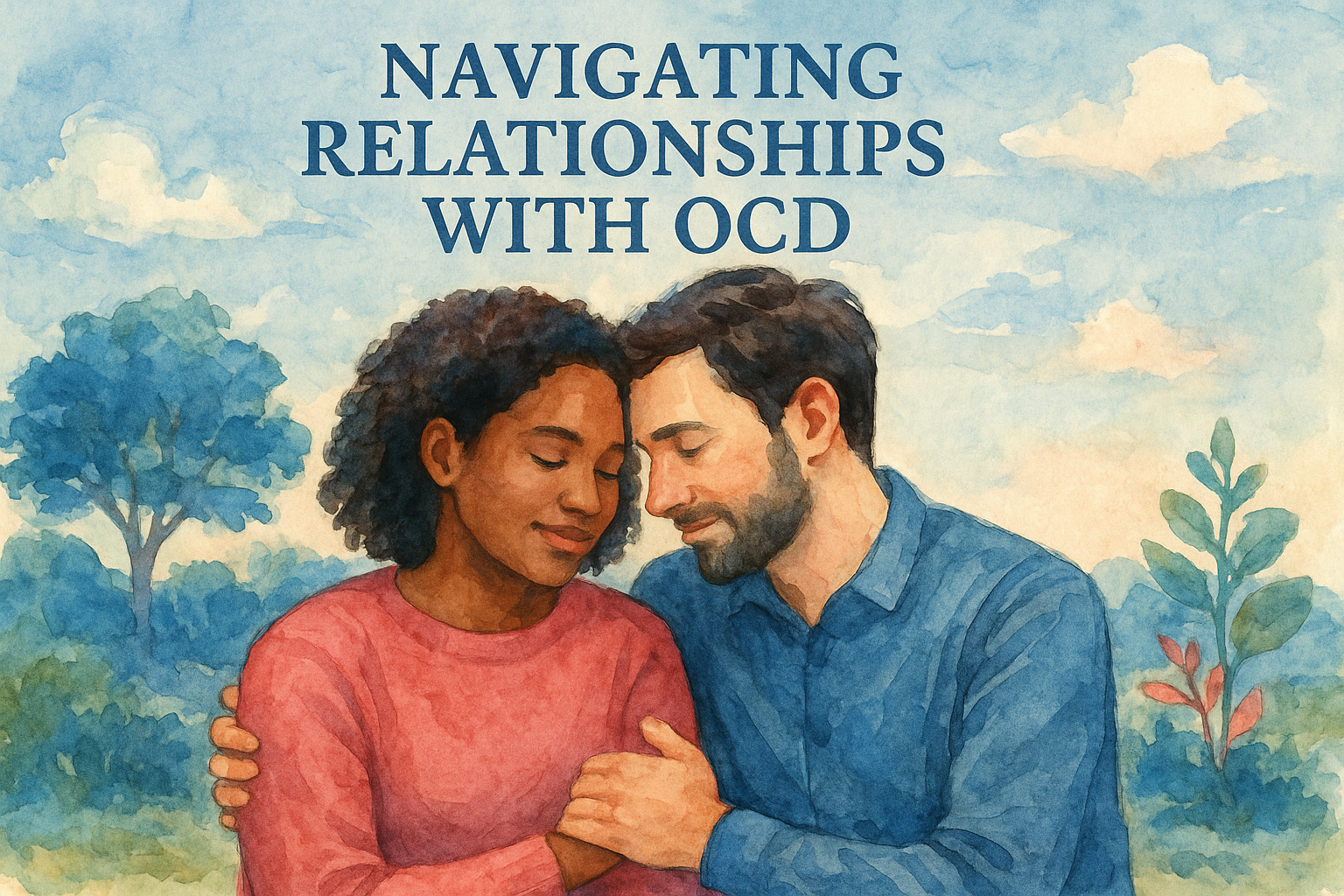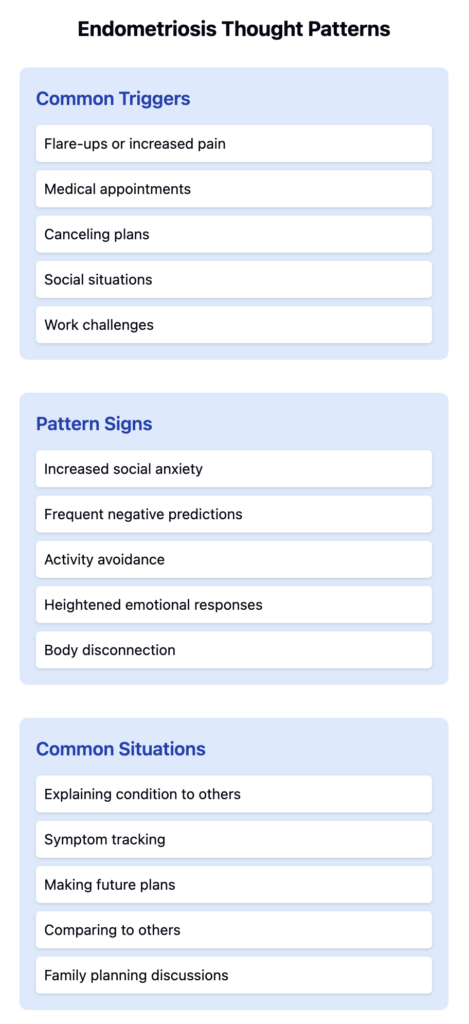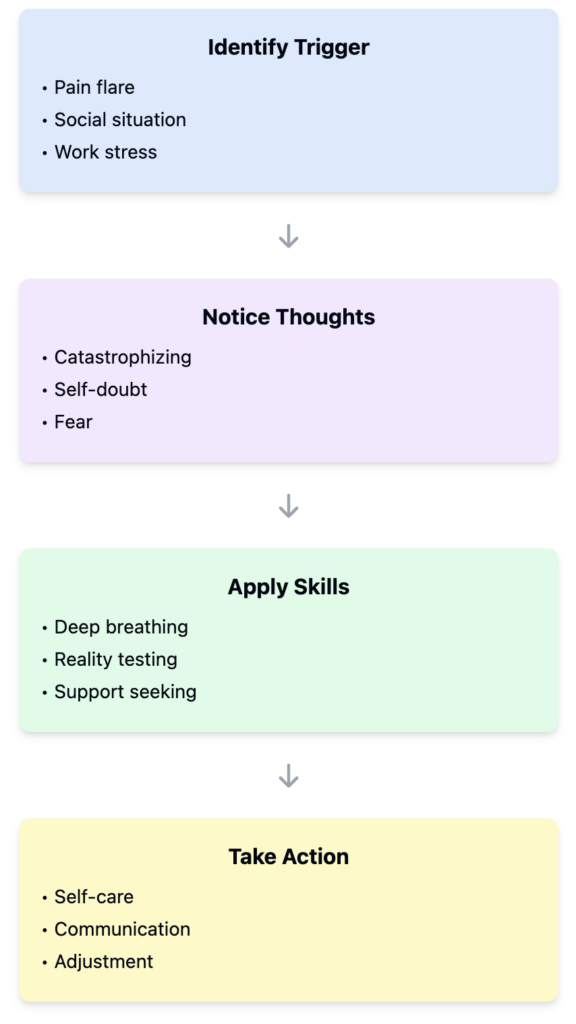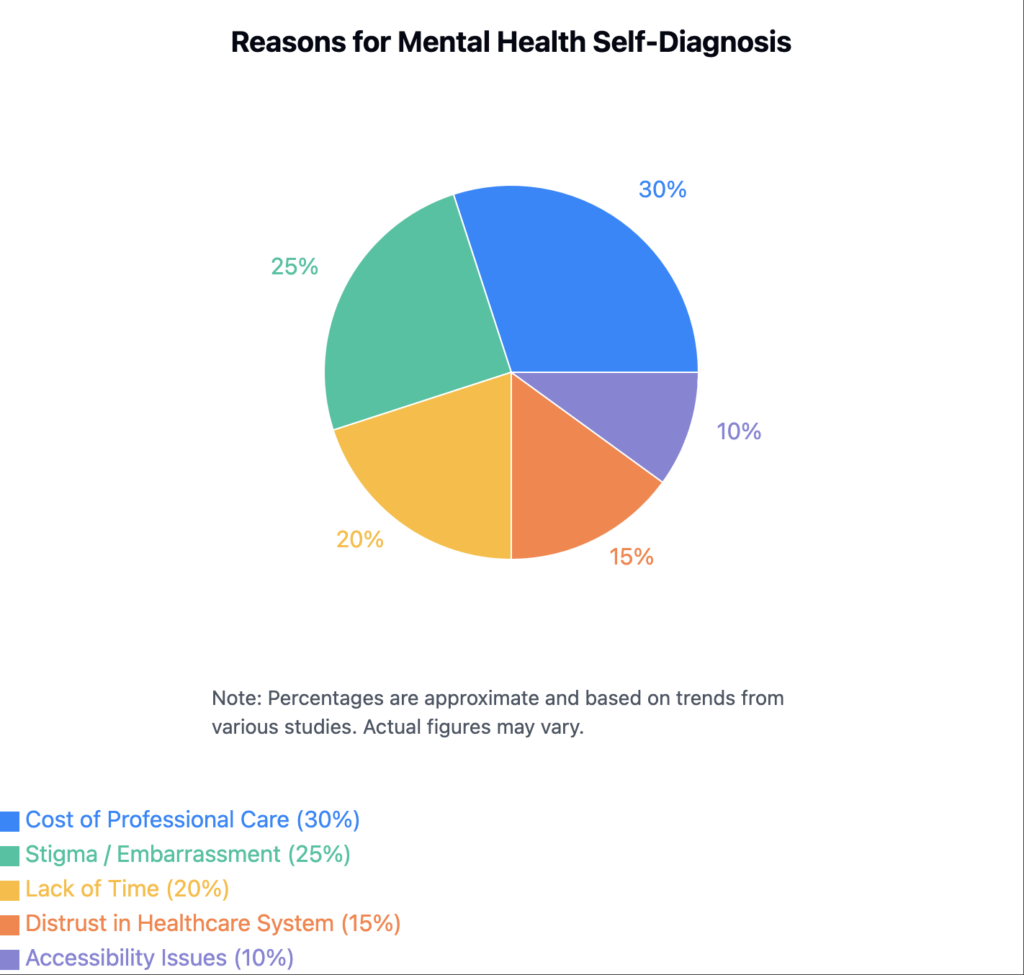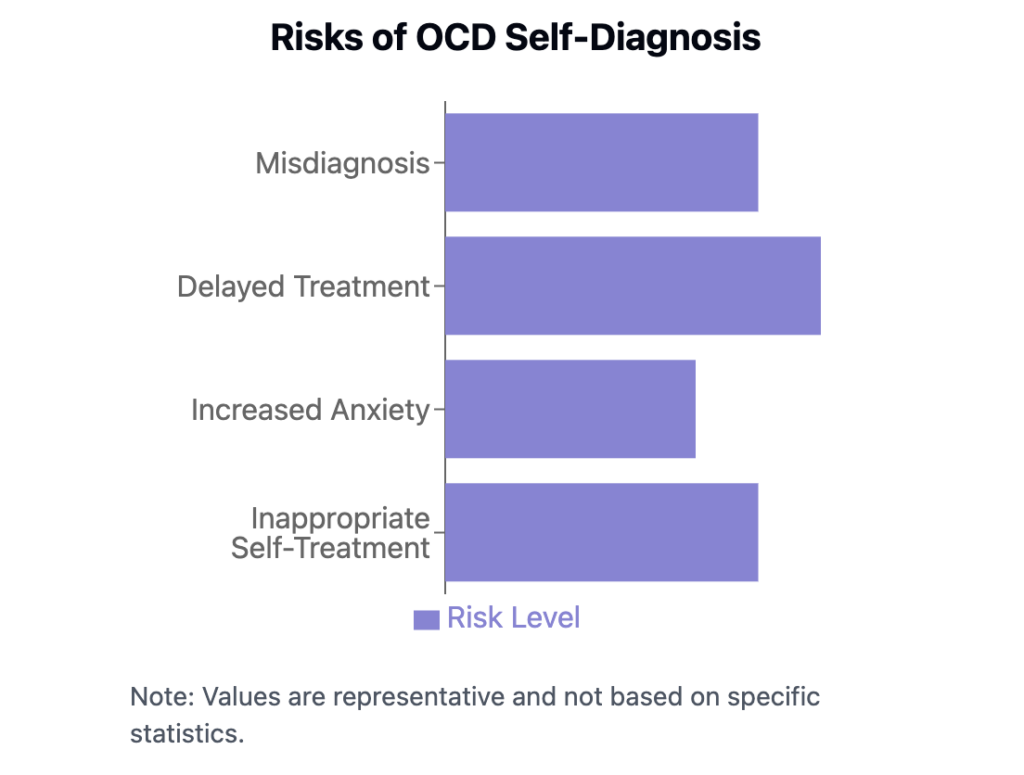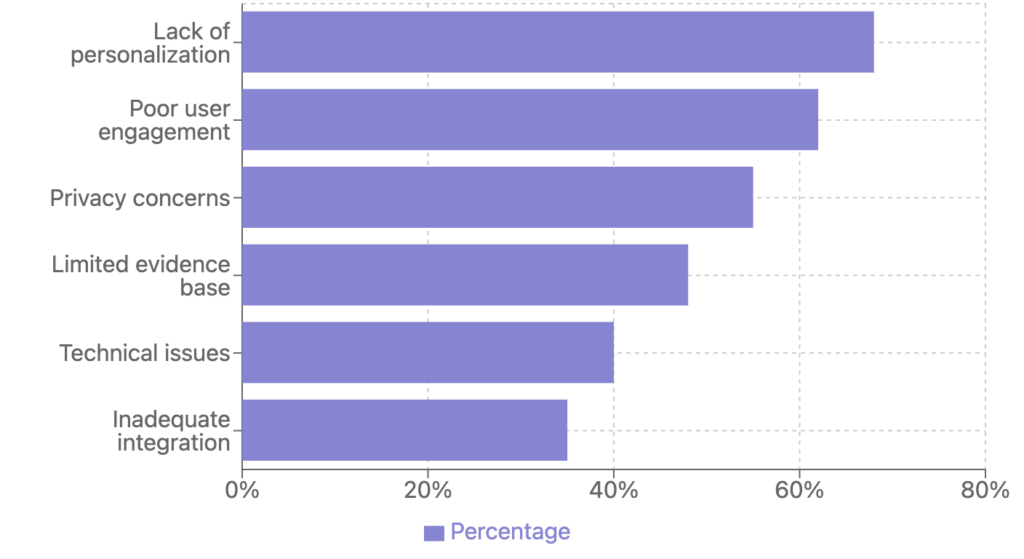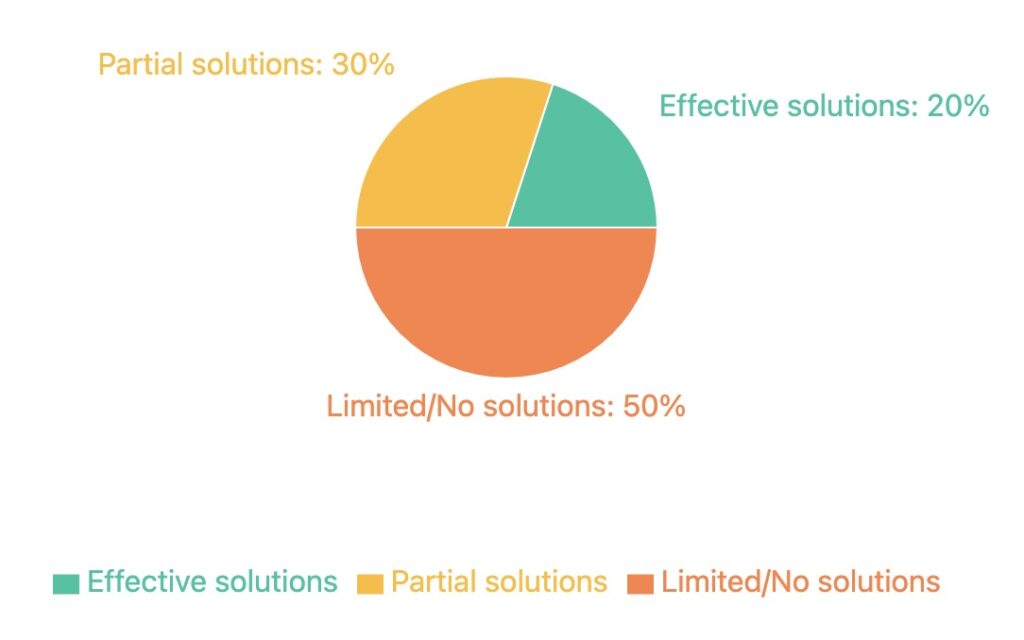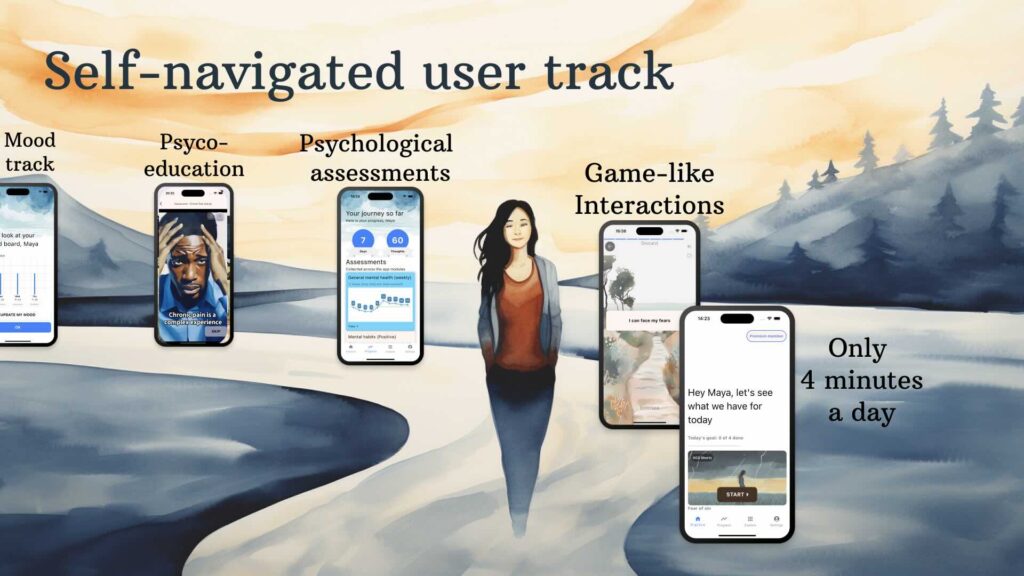Workplace anxiety, OCD, and perfectionism can significantly hinder job performance and productivity. By employing a cognitive-first approach through Cognitive Behavioral Therapy (CBT), we can better understand and reshape maladaptive beliefs, leading to improved mental wellbeing. This article guides you through the beliefs, thinking patterns, and behaviors that contribute to workplace challenges.
Understanding Workplace Anxiety and OCD
In the workplace, the insidious intertwining of perfectionism and compulsive checking can create a cycle of anxiety that not only affects individual performance but also reverberates throughout team dynamics. At the root of this phenomenon lies a rigid belief system that equates productivity and self-worth with flawlessness. Such beliefs often manifest in relentless attention to detail, resulting in compulsive behaviors that can stifle both creativity and efficiency.
Consider Sarah, a project manager who consistently experiences anxiety when approaching deadlines. Sarah’s role requires her to ensure that her team’s deliverables meet high standards. While striving for excellence is commendable, her belief that anything less than perfection is unacceptable propels her into a state of constant worry. Consequently, she engages in compulsive checking behaviors, reviewing her team’s work multiple times, double-checking every line of code, and continuously revising presentations, often at the expense of other crucial tasks. This overemphasis on perfection leads her to neglect strategic planning and team collaboration, ultimately hindering productivity.
Research indicates that perfectionistic tendencies can stem from various sources, including upbringing, cultural pressures, and workplace expectations. Individuals who feel an inherent need to meet exceedingly high standards are often plagued by the fear of failure. This fear can trigger avoidance behaviors, where an individual may delay starting a task altogether because they are overwhelmed by the expectation of achieving perfection. For instance, John, an analyst, fears submitting reports that may contain “even the slightest error.” This fear leads him to procrastinate, missing deadlines and compounding his anxiety as the day of submission approaches.
Such dynamics can adversely affect team cohesion. When one team member, like Sarah, is preoccupied with checking minutiae, they might become less available to their colleagues, leading to resentment and frustration within the team. Moreover, if Sarah expresses her concerns about her team’s output through micromanagement, it may stifle their creativity and confidence. Team members may begin to second-guess their work, fostering a culture where perfectionism is celebrated but innovation is stifled. This can create a ripple effect of heightened anxiety, as the fear of disappointing a perfectionist colleague can inhibit open communication and collaboration.
To address the debilitating cycle of perfectionism and compulsive checking, Cognitive Behavioral Therapy (CBT) offers a structured approach to challenge and reframe irrational beliefs. CBT encourages individuals to recognize perfectionistic thoughts—such as “If I don’t deliver a perfect report, I’m a failure,” or “My worth is defined by the quality of my work”—and question the validity of these beliefs. Through therapeutic techniques like cognitive restructuring, individuals can shift their mindset from perfectionism to striving for excellence without the burden of unattainable standards.
In a practical scenario, Sarah might learn to set realistic goals for her project timelines, allowing her to focus on the quality of her team’s output rather than fixating on achieving zero errors. By breaking tasks into manageable components and celebrating small successes, she can shift her focus toward productivity rather than perfection. Furthermore, implementing strategies such as “time-boxing” can be particularly helpful. Allocating a specific amount of time to review work encourages focus on the bigger picture rather than getting lost in minute details.
For John, engaging in CBT may involve reframing his thoughts around submitting reports. By utilizing exposure techniques, he can gradually confront his fear of errors by submitting work that is “good enough” rather than perfect. This may start with small, low-stakes tasks, building resilience against anxiety and reinforcing the idea that imperfection does not equate to failure. With continuous practice, John can cultivate a sense of flexibility, understanding that his value as an employee extends beyond the accuracy of his reports.
Additionally, fostering an organizational culture that emphasizes learning from mistakes rather than vilifying them can alleviate the pressure to be perfect. Encouraging team discussions centered around “lessons learned” rather than “who is to blame” promotes psychological safety, allowing team members to express their anxieties and compulsions without fear of retribution. This shift not only enhances individual well-being but also strengthens team dynamics, leading to a more collaborative and productive work environment.
By embracing the principles of CBT, individuals struggling with perfectionism and compulsive behaviors can develop healthier coping strategies that allow them to navigate their workplace anxieties. This empathetic approach recognizes that while the desire for high standards is natural, the pursuit of perfection need not come at the expense of mental well-being or team synergy. As employees learn to embrace imperfection, they can unlock their creative potential and improve their overall work performance, driving collective success in the workplace.
The Role of Perfectionism and Compulsive Checking
Perfectionism and compulsive checking behaviors can act as significant barriers to effective functioning in the workplace. For individuals who hold rigid beliefs about their work and performance, the quest for perfection often spirals into unproductive cycles of anxiety and compulsive actions. The connection between perfectionism and compulsive behaviors, such as constant checking, can be deeply entrenched, creating an ongoing struggle that affects not just personal well-being but also overall productivity and work performance.
Take, for instance, Jane, a marketing manager at a bustling advertising agency. Jane prides herself on her attention to detail. Her mantra, “Anything worth doing is worth doing perfectly,” drives her commitment to her work. While this belief is not inherently negative, it leads her to obsessively check emails, slides, and reports. Before sending out a campaign email, Jane may spend hours reviewing it, fearing that a simple typo could tarnish her professional integrity. Each time she checks, her anxiety spikes, compelling her to scrutinize minor details, the color scheme, and even font choices, resulting in delays and missed deadlines. This pattern not only hampers her productivity but also creates friction in team dynamics, as colleagues are often left waiting for her contributions and decisions.
This cycle of anxiety and compulsive checking is common in perfectionists and can arise from deep-seated beliefs that equate self-worth with achievement. Such individuals may perceive that any error reflects a personal failure, ignoring the fact that mistakes are part of the learning process. For example, Michael, an IT specialist, believes that if his code contains even the slightest error, he will lose his credibility in the eyes of his peers. Consequently, he revises his code multiple times before submitting it for review and frequently checks for feedback long after he’s received it, leading to significant delays in project completion. In both cases, what could have been simple tasks evolve into monumental challenges due to a relentless pursuit of flawlessness.
The compulsion to recheck or to seek reassurance can lead to a profound decrease in a person’s ability to focus on the larger picture, effectively stifling creativity and innovation. These behaviors can throw a wrench in team collaboration, as the perfectionist’s delays ripple out to affect the entire team’s productivity. This not only increases stress but can lead to resentment among coworkers who may feel that their work is hindered by the perfectionist’s compulsions.
Cognitive Behavioral Therapy (CBT) offers an effective framework for addressing the perfectionistic thought patterns and compulsive behaviors that can trap individuals in an unending cycle of anxiety. By identifying and challenging the underlying rigid beliefs, CBT encourages individuals to adopt more flexible thinking, facilitating a healthier relationship with work. For example, Jane could benefit from reframing her belief that “if I’m not perfect, I’m a failure” to “mistakes are opportunities to learn and grow.” This shift in thinking can reduce her anxiety and the need for excessive checking, allowing her the freedom to focus on completing her tasks without being bogged down by minor details.
In practice, CBT can involve various techniques. One approach is exposure therapy, where individuals gradually face the situations they fear—like sending an email without multiple rounds of checks. By starting with less daunting tasks, such as sharing a draft with a colleague before final approval, Jane can reduce her anxiety over time and learn that her work does not need to be flawless to be valuable.
Additionally, keeping a thought journal is a practical CBT strategy that can cultivate awareness and understanding of perfectionistic thoughts. Jane might note her automatic thoughts when she feels the urge to check her work repeatedly. Over time, she can analyze these entries, recognizing patterns. For example, if she identifies that each time she fears an error, it stems from a desire for validation, she can actively reframe those thoughts, diminishing their power.
Through consistent practice and support, individuals can learn that perfectionism and compulsive checking do not equate to greater work performance. Instead, by fostering an environment of flexibility and embracing imperfection, productivity can flourish. Teams become more cohesive, and deadlines can be met without the cascading effects of one person’s compulsions.
Ultimately, the relationship between perfectionism and compulsive checking is complex. By employing CBT techniques to challenge maladaptive thoughts and behaviors, individuals can navigate these challenges with empathy towards themselves, transforming anxiety into constructive action that enhances both mental well-being and work performance. Breaking the cycle of compulsive checking fosters resilience and a more balanced perspective on achievement, allowing individuals to thrive in their professional roles.
Enhancing Productivity and Work Performance through Flexible Thinking
Workplace anxiety often manifests in various unsettling ways that can inhibit an individual’s ability to perform effectively. One significant contributor to this anxiety is the presence of maladaptive beliefs, which often stem from a mix of societal pressures, personal insecurities, and an overwhelming need for validation. When these beliefs are left unchecked, they can foster a rigid mindset that limits an individual’s capacity for flexibility and adaptability in their role, which ultimately impacts productivity and job success.
Consider the employee who believes that missing a minor deadline means they are a failure. This rigid thought can spiral into anxiety, prompting compulsive checking of emails and unfinished projects, a behavior rooted in their desire to prove their worth. While the intention behind such actions is to maintain control, they ironically lead to decreased productivity, as the individual invests an increasing amount of time in minor details rather than focusing on larger, more impactful responsibilities. Cognitive Behavioral Therapy (CBT) provides a framework through which these maladaptive beliefs can be understood and restructured, leading to improved resilience and performance.
CBT encourages individuals to recognize and challenge their distorted thoughts. For instance, instead of clinging to the belief that “If I’m not perfect, I’ll never succeed,” one can learn to counter this with supportive thoughts such as, “Mistakes are part of learning, and I can still achieve my goals while growing through challenges.” This reframing helps to alleviate the constant pressure of perfectionism, allowing individuals the freedom to engage more fully in their tasks without the fear of judgment.
Another common belief that creates barriers to productivity is the idea that one’s value is directly linked to their output. This can manifest as a compulsive need to work extra hours or take on more responsibilities, which ultimately leads to burnout and diminished work performance. By introducing cognitive restructuring into the workplace, individuals can learn to form balanced viewpoints. They might replace, “I must always be the first to volunteer for new projects to be valued,” with “I am valuable for my unique skills and contributions, and it’s okay to prioritize my well-being.” Such transformative thoughts foster a healthier work-life balance and make room for creativity and innovation.
One effective CBT strategy involves setting realistic goals. When employees break their tasks down into manageable, achievable objectives, it fosters a sense of accomplishment and reduces anxiety. For example, instead of aiming to complete an entire presentation perfectly in one day, a worker can set a goal to finish a draft, gather feedback, and incorporate that input in subsequent revisions. This incremental approach not only diminishes the pressure of perfection but also enhances the overall quality of work through collaborative input.
Another helpful technique is employing the practice of self-compassion. Many individuals with workplace anxiety have a tendency to engage in negative self-talk during stressful periods. They may reflect on a misstep with phrases like, “I can’t believe I messed that up; I’m so incompetent.” CBT encourages replacing harsh self-criticism with understanding. Consider swapping that negative appraisal with, “I’m human, and everyone makes mistakes. I can learn from this experience and do better next time.” This shift in thinking can significantly reduce anxiety and promote greater productivity.
Moreover, fostering a supportive workplace culture that encourages open communication can significantly enhance mental health and productivity. When employees feel safe discussing their challenges and vulnerabilities, it diminishes the stigma surrounding anxiety and compulsion. This reinforces the understanding that seeking help is a sign of strength rather than weakness.
Practical steps to implement these CBT techniques in the workplace include:
– **Encouraging Regular Check-Ins:** Managers can schedule one-on-one meetings to discuss not only project progress but also any anxieties or challenges being faced. This opens the door for supportive discussion and the normalization of workplace stress.
– **Initiating Mindfulness Practices:** Short mindfulness sessions can be aggregated into weekly routines to help employees focus and cultivate adaptive thinking in high-pressure scenarios.
– **Offering Workshops on CBT Techniques:** Providing training focused on cognitive restructuring, goal setting, and self-compassion can equip employees with skills to combat negative beliefs head-on, fostering a more resilient workforce.
– **Establishing a Feedback Loop:** Create a structured environment where feedback is delivered constructively and regularly. This encourages individuals to view feedback as a tool for growth rather than criticism, dismantling fears associated with mistakes.
By promoting flexible thinking and recognizing the impact of maladaptive beliefs on performance, organizations can foster a culture that enhances mental well-being. With resilience and a positive mindset, employees can overcome workplace anxiety and compulsions, ultimately leading to improved job satisfaction and productivity. Employing these strategies can create a vibrant workplace where creativity flourishes, and success is measured by growth rather than perfection.
Conclusions
In conclusion, recognizing the interplay between beliefs and cognitive patterns is crucial for improving workplace performance and wellbeing. By adopting a CBT approach, individuals can enhance their resilience against workplace anxiety and compulsive behaviors, leading to a more fulfilling and productive professional life.

